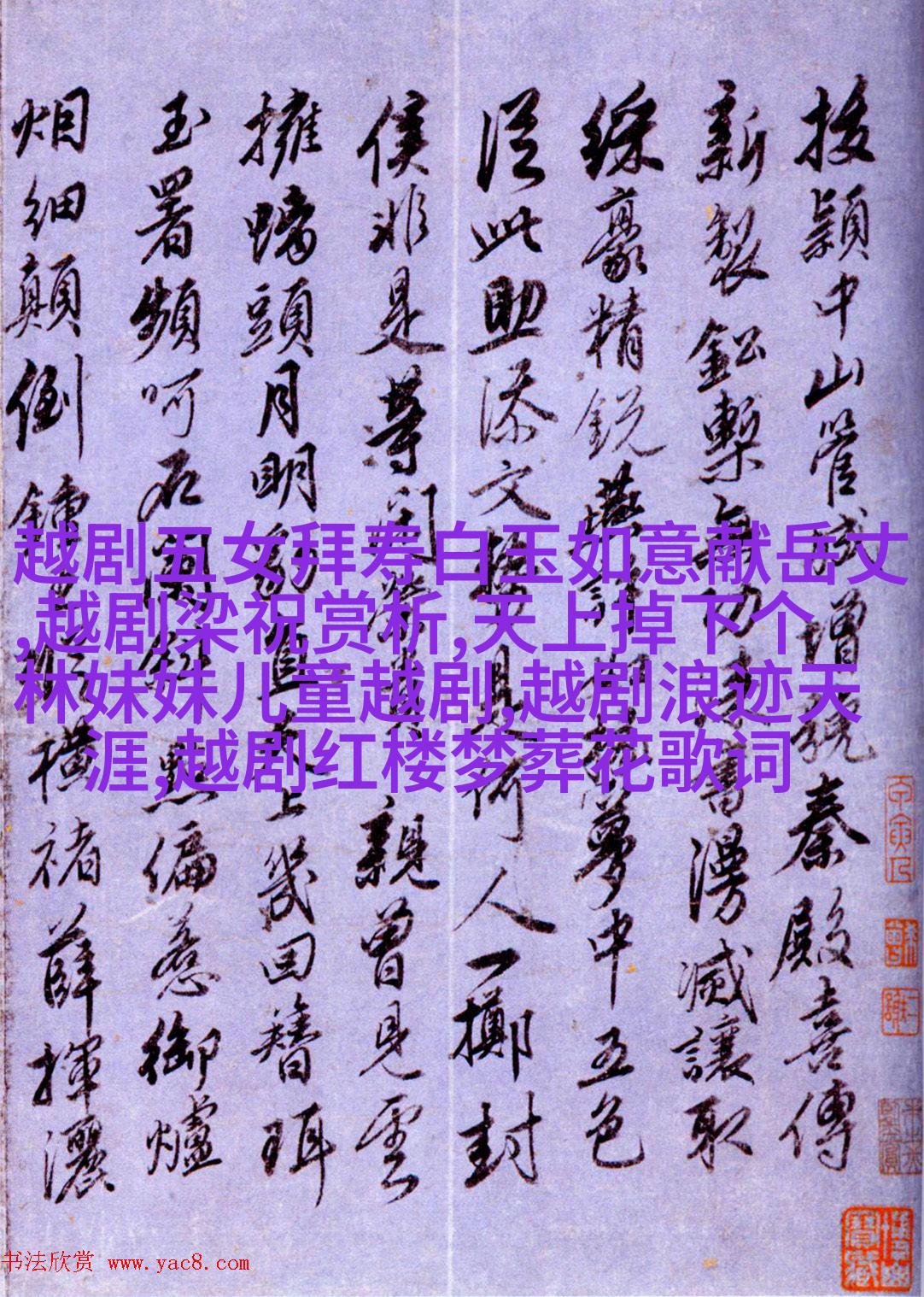笑声满堂:杨三春越剧金曲大联唱

在一座古老而神秘的城市里,有着数百年的历史和文化传承,那就是中国的绍兴,这里的越剧不仅是这座城市最为人知的艺术形式,更是中国传统戏曲的一朵奇葩。每当夜幕降临,灯火通明之下,人们聚集于小桥流水、古庙幽巷之间,共同聆听那些被世人称赞为“歌颂中华”的越剧演绎。
今天,我们要讲述的是一个传奇人物——杨三春,他是一位以其卓绝的才华和深厚的人文素养闻名遐迩的小生。他曾经在一次偶然的情境中,与一位才女相遇,那便是一场关于音乐与诗词对话的盛宴,而后,他们携手合作,一首接一首地创作出了一系列震撼人心的越剧作品。

《梦回东京》中的伴奏魔力
记得那是一个清晨,阳光透过窗户洒进了他的工作室。在几本书籍和几把笔墨间,他开始构思他即将面临的一个挑战——重塑《梦回东京》,让这首已经被世人熟知的情歌再次焕发新生。随着手指轻触琴弦,他逐渐沉浸于音乐之中,而这一切,都源自他对这个故事背后的情感深刻理解。

伴随着悠扬的声音,每个音符都像是来自另一个世界的声音,让听者仿佛置身于唐朝王国。杨三春用他的声音点燃了每个人的内心,同时也点燃了整个空间。这正是越剧独有的魅力所在,它不仅仅是在空气中飘荡的声音,更是一种情感上的共鸣,是一种跨越时空的情感交流。
《渔家女》的诗意与节奏

就像那年夏天,当他第一次听到《渔家女》这首歌时,就如同踏入了一片宁静而又充满力量的地方。他决定将自己对于生活美好的理解通过自己的表演来展现。当舞台上出现了那个温柔却坚韧的小船女,她带来的不是只是一段简单的话语,而是一个时代、一种生活方式的一部分。那时候,没有任何人能预见到,这个小生会如何用他的声音去唤醒这个时代沉睡的心灵。
每一次跳跃,每一次旋转,每一次悲伤或欢快都有其特定的节奏,它们交织成了一幅幅动人的画面,使得观众仿佛能够看到那个渔家的景象。而杨三春则是画面的主角,他用自己的生命去诠释这个角色,用自己的智慧去解读这个故事,从而让它变得更加真实和鲜活。

从《秋水杯》到《花影舞》,追忆与未来
在之后的一些日子里,无论是在繁忙的排练还是紧张激烈的地铁上乘坐至目的地的时候,那些旋律总是萦绕在耳边,就像一个无形的声音,不断提醒我们不要忘记过去,也不要放弃未来的希望。这种感觉,如同走过故乡的大街,只需闭上眼睛,便能想起所有熟悉的事物,但同时你也知道,你不能永远停留,因为你的脚步必须向前行驶,以便看到更多新的风景线。
这样的感觉,在杨三春身上尤为明显。他并不只是因为成功而满足,因为他清楚地知道,即使最完美的事情也有它们不可避免的问题和局限性。但正因为如此,他更努力地寻求解决办法,用他的才华去超越这些限制,并且不断创新,以此来保持自己作为艺术家的身份及价值。这份执着,让他成为了一代又一代爱好者的英雄,他们为了追寻那些他们认为正确的事物,不懈努力,为之奋斗到底直至最后成功实现他们最初设下的目标,或许甚至超过他们原本设想中的极限范围内!
总结
笑声满堂:Yang San Chun's Amazing Vocal Performance in Yue Opera
In the ancient city of Shaoxing, there is a rich history and cultural heritage that has been passed down for centuries. The Yue opera, which is one of China's traditional forms of theater, has become a symbol of this city and a unique gem in Chinese drama. When night falls, people gather around bridges by the river, old temples in secluded lanes to listen to the performances that are praised as "singing about China."
Today we want to tell you about Yang San Chun who became famous for his exceptional talent and deep cultural roots. He once had an unexpected encounter with a talented actress during which they exchanged music and poetry, leading them to create several stunning Yue opera pieces.
The article describes how Yang San Chun created new versions of two classic songs: "Dreaming Back East Capital" and "Fisherman's Daughter." Each note he played was like a voice from another world that transported listeners back into Tang Dynasty royal courts. His performances were not just melodies floating through the air but emotional connections transcending time and space.
For instance, when he first heard "Fisherman's Daughter," he felt like stepping into a quiet yet powerful place where life was simple yet full of hope. Every step or turn on stage had its own rhythm weaving together into vivid scenes making it seem like observers could see the fisherman's home scene while Yang San Chun embodied this character using his wisdom to interpret their stories making them more real and fresh.
As time went on these melodies haunted him whether during busy rehearsals or rush-hour commutes reminding him not forget past experiences nor abandon future hopes. This feeling was particularly evident in Yang San Chun who did not rest content with success knowing well that even perfect things have problems or limitations but instead sought solutions continually innovating maintaining his identity as an artist striving for excellence beyond limits constantly seeking new horizons!


